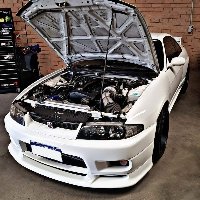Brake Pads Users Ratings Guide
Announcements
-
Similar Content
-
Latest Posts
-
By Dose Pipe Sutututu · Posted
Oh you'll be surprised how much the motor breathes when it sees nearly 2 bar of boost. That will definitely pop, but for now, more than happy with 99.99% of the crank case fumes and engine shit going back into the intake. -
You'll likely find, you never really get pressure to pop that valve. If you are getting "pressure" it's going out the unrestricted hole before it hangs around to build up and pop the rubber flap. IE, it's headed for the intake pipe. In reality, if we did it right, your "vent" would actually go to a PCB valve at the inlet, and you'd still have the two the intake pipe too. When in vacuum, motor sucks it in, when on boost, PCB shut, and you will be getting enough air flow past (if they've put the catchcan pipe on the inlet in a good spot, at the right angle) which will create suction. Current setup in reality, you're just forcing it to the intake pipe.
-
Slightly off topic - I've just wired oil pressure sensor into my LinkECU as well - I tapped into the existing dash cluster oil pressure light wiring, and fed that back into an Auxiliary output in the ECU. That now lets me control the original dash oil pressure light based on a range of conditions triggered by the LinkECU - means the factory light isn't entirely redundant now that the factory oil pressure switch is no longer installed.
-
By Murray_Calavera · Posted
Hasn't risen high enough on the to do this yet for it to be done lol. One day it will be done... one day... I know, but I tell myself its ok because I took a heap of temp measurements of the terminals over a 12 or so hour drive, temps were never an issue. Plus I made sure to pat the bulk head and say "she'll be right". So, yep she'll be right lol. -
Mine was great for years too!
-









Recommended Posts
Create an account or sign in to comment
You need to be a member in order to leave a comment
Create an account
Sign up for a new account in our community. It's easy!
Register a new accountSign in
Already have an account? Sign in here.
Sign In Now